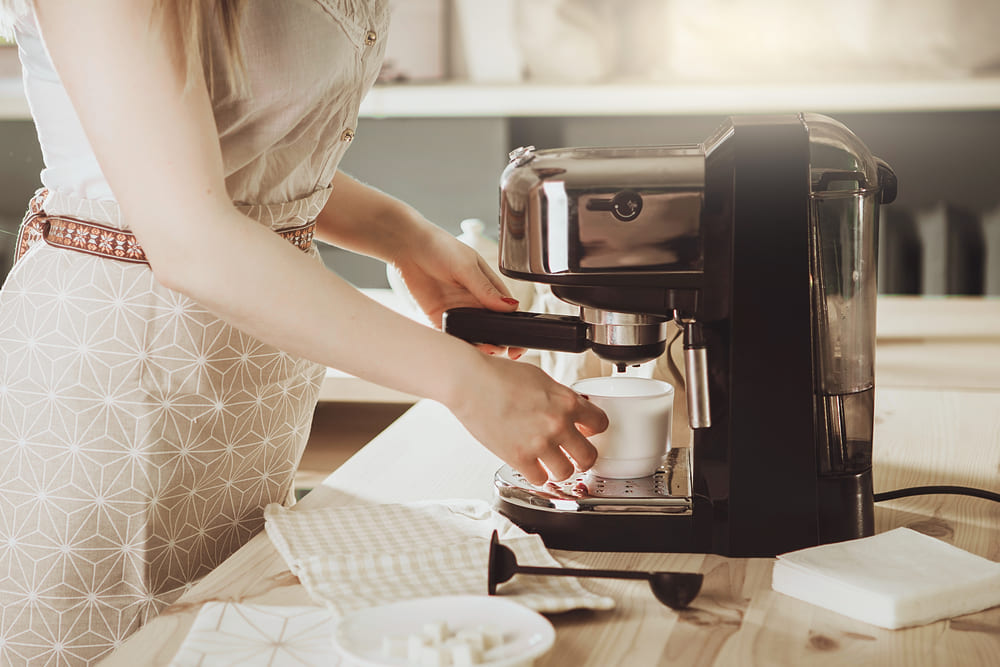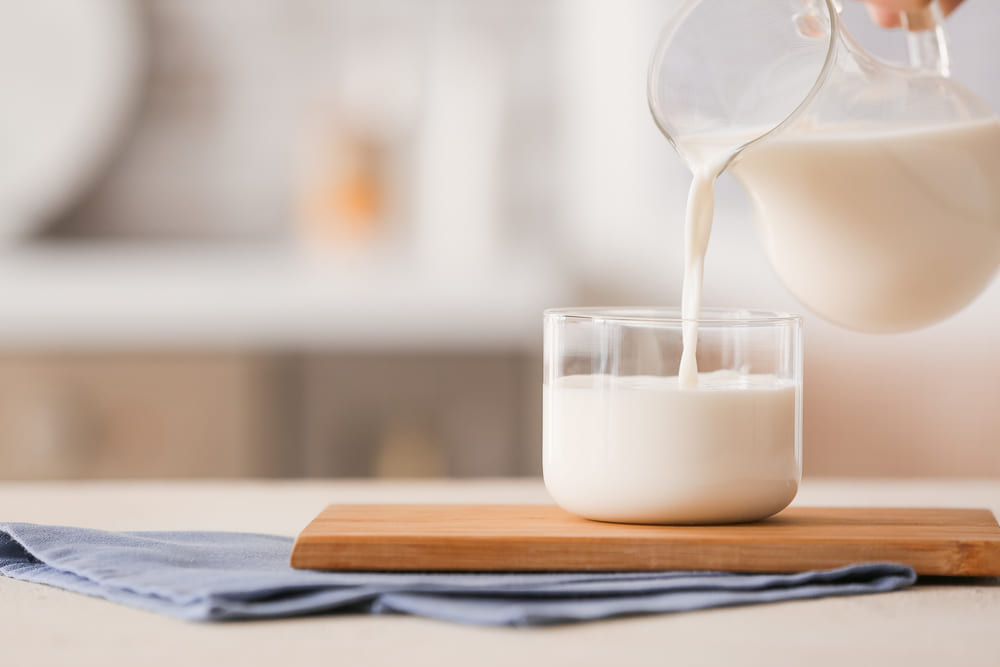Having a cup of coffee in the morning is one of the best things to do to wake you up from sleepiness. In this case, a coffee maker will help you a lot to save time and even make your coffee have a better taste.

However, you prefer a latte, espresso, or macchiato to the original taste of coffee due to the excellent combination of milk and coffee that you are often served at the store. You start thinking that you want to remake it yourself. But can you put milk in a coffee maker to make your milk coffee as when you make coffee with water by the coffee machine? Is there any difference or negative effects to the taste or other things?
This article will answer the questions posed as you are not sure if putting milk in a coffee machine would be a good idea.
Can you put milk in a coffee machine instead of water?
Usually, you use a coffee maker only to brew coffee with water because the ideal medium for obtaining the optimum flavor profile from coffee is water. Besides, there is no coffee brewer brand suggesting that customers should replace water with any other liquids to brew coffee.
Therefore, the thought of using milk instead of water is still triggering to you. Here is the answer, “You can, but you should not”.
You can, because milk is also as liquid as water, if you want to replace water to make coffee you just need to pour it into the tank. However, the result will be so different.
You should not because milk causes several disadvantages to your coffee and your machine.

Milk will cause bacteria development inside your coffee maker. Milk composition in the United States typically contains 87.7 % water, 4.9 % lactose (carbohydrate), 3.4 % fat, 3.3 percent protein, and 0.7 % minerals (referred to as ash) and other variations.
As milk contains 87.7% water, it is very high in moisture and becomes the ideal environment for bacteria to extend under room temperature. Compared to milk, water is much purer because it does not have as many properties as milk does thus it can be left out under regular conditions.
Furthermore, milk contains lactose which can be converted into glucose and galactose by bacteria. It’s simple for lactic acid bacteria to get into milk because bacteria frequently receive negative presses. This leads to the production of lactic acid which means your milk spoils.
Hence, using milk to brew coffee attracts bacteria in the reservoir. Unfortunately, it is very difficult and time-consuming to clean the machine once you let the milk go through. The machine will get moldy and smell bad. The worst is you cannot get the machine as it used to be and you have to throw it away.
Milk may cause blockages in the coffee maker vents as well.
Heating milk too much by the coffee brewer affects the taste of your coffee. Milk has quite the same boiling point as water, at 100.55 degrees Celsius or 213.5 degrees Fahrenheit. However, water still keeps its texture when boiled but milk separates itself when it turns into scalded milk.
Getting that perfect cup of brewed coffee will often take between 8-10 minutes to heat up. It is too much for heating a liquid that comes in many nutrients like milk. The water will stay at the bottom and other fats and solid compounds float to the top as it undergoes biochemical changes.
Of course, scalded milk cannot be used to make coffee anymore. Even if the milk is not scalded yet, you will still feel that your coffee tasted so bad. Water boils at a higher temperature. Similar temperatures for milk can make the milk burnt.
How do you use milk in a coffee maker?
Basically, in case you want to use milk in your coffee without damaging your machine, you have to add milk in the final step. After getting the coffee brewed by the machine, you can add milk based on your preference to enjoy a hot cup of milk coffee.
Though putting milk in most coffee makers is not recommended, there is a coffee maker that can satisfy your desire. Not only can you put tea and milk pods through it, but it also runs espresso capsules. It is called a Verismo of Starbucks.
It is technically “a coffee maker you can put milk in”. If you purchase this product, you can easily make your favorite latte or hot chocolate without worrying about the taste of your coffee as well as the safety of the coffee machine.
Another solution is to use the alternative. You can use an espresso maker instead of a coffee maker to brew coffee with milk as you want.
The bottom line
Milk coffees are the best beverage ever but you totally should not remake them at home with your coffee maker. Let milk stay in the reservoir and run through the machine not only harming the system but also your health and your coffee’s taste. Using other methods to make milk coffee is also a good idea.
